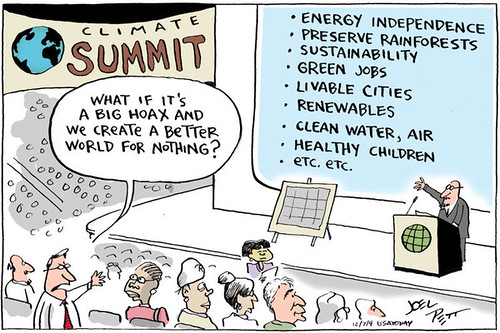(1) The heaven and the earth were finished, and all their array. (2) On the seventh day Adonai finished the work that Adonai had been doing, and ceased on the seventh day from all the work that Adonai had done. (3) And Adonai blessed the seventh day and declared it holy, because on it Adonai ceased from all the work of creation that Adonai had done. (4) Such is the story of heaven and earth when they were created. When Adonai Elohim made earth and heaven— (5) when no shrub of the field was yet on earth and no grasses of the field had yet sprouted, because Adonai Elohim had not sent rain upon the earth and there was no man to till the soil, (6) but a flow would well up from the ground and water the whole surface of the earth— (7) Adonai Elohim formed man from the dust of the earth. Adonai blew into his nostrils the breath of life, and man became a living being. (8) Adonai Elohim planted a garden in Eden, in the east, and placed there the man whom Adonai had formed. (9) And from the ground Adonai Elohim caused to grow every tree that was pleasing to the sight and good for food, with the tree of life in the middle of the garden, and the tree of knowledge of good and bad.
(טו) וַיִּקַּ֛ח יְהוָ֥ה אֱלֹהִ֖ים אֶת־הָֽאָדָ֑ם וַיַּנִּחֵ֣הוּ בְגַן־עֵ֔דֶן לְעָבְדָ֖הּ וּלְשָׁמְרָֽהּ׃
(15) Adonai Elohim took and placed adam in the garden of Eden, to till it and tend/keep/have charge of/watch over/guard it.
What is adam's relationship with nature?
(3) יהוה אלהים Adonai Elohim— יהוה is God's Name, whereas אלהים signifies Ruler and Judge over all. This, too, is its meaning, according to the plain sense, wherever it occurs: יהוה is אלהים (Ruler and Judge).
(ז) י"י הוא שמו. שם העצם שלו הוי"ה ר"ל יש בו אותיות היה הוה ויהיה דהיינו שמו א"נ שם העצם כלומר אות וסימן על עצמותו יתב' ושמות האחרים הם שמות התוארים.
(7) Adonai is His Name. God's actual Name is יהוה, as it has the letters of היה הוה ויהיה (God was, God is, and God will be), and that is God's Name. An alternative explanation: It is the Name signifying God's essence, whereas the other names each describe one of His traits.
How do the commentators (Rashi, France, 11th c. & Siftei Chachamim, Prague 17th c.) understand Adonai? How does that understanding of Adonai interact with nature?
(ב) וְכֹל שִׂיחַ הַשָּׂדֶה, כָּל הָאִילָנוֹת כְּאִלּוּ מְשִׂיחִין אֵלּוּ עִם אֵלּוּ. כָּל הָאִילָנוֹת כְּאִלּוּ מְשִׂיחִין עִם הַבְּרִיּוֹת. כָּל הָאִילָנוֹת לַהֲנָאָתָן שֶׁל בְּרִיּוֹת נִבְרְאוּ...כָּל שִׂיחָתָן שֶׁל בְּרִיּוֹת אֵינָהּ אֶלָּא עַל הָאָרֶץ...וְכָל תְּפִלָּתָן שֶׁל בְּרִיּוֹת אֵינָהּ אֶלָּא עַל הָאָרֶץ...
(2) And every growth/si’ach of the field” [Gn 2:5]—All the trees are conversing/m’sichin, these with these. All the trees are conversing with the creatures / im hab’riyot. All the trees were created to give pleasure to the creatures . . . All the conversations of the creatures are about nothing except the land . . . and all the prayers of the creatures are about nothing except the land . . .
(2) כי לא המטיר BECAUSE GOD HAD NOT CAUSED IT TO RAIN — And what is the reason that God had not caused it to rain? כי אדם אין לעבוד את האדמה BECAUSE THERE WAS NO HUMAN TO TILL THE GROUND, and there was, therefore, no one to recognize the utility of rain. When Adam came (was created), however, and he realised that it was necessary for the world, he prayed for it and it fell, so that trees and verdure sprang forth.
(א) טרם יהיה בארץ אמנם הטעם שבהבראם נמצאו בכח ולא בפועל באופן שכל שיח השדה עדיין לא היה בארץ וכן כל עשב השדה עדיין לא צמח:
(1) וכל שיח השדה, “and all the greenery of the field, etc.” The vegetation which had begun to sprout forth on the third day had actually not broken through the surface of the soil until the sixth day when Adam prayed for rain to materialize. When the rain materialized all these plants surfaced above the earth. Nachmanides, explaining the literal meaning of our verse, the פשט, says that whereas on the third day all the plants mentioned materialized in their mature form, they did not develop as there was no one to tend them. The reason why the vegetation here is not described as שיח האדמה, the vegetation of the earth, but as שיח השדה, is that the word שדה is indicative of something subject to agriculture, ground that is being worked. This had not started until after the first rainfall.




